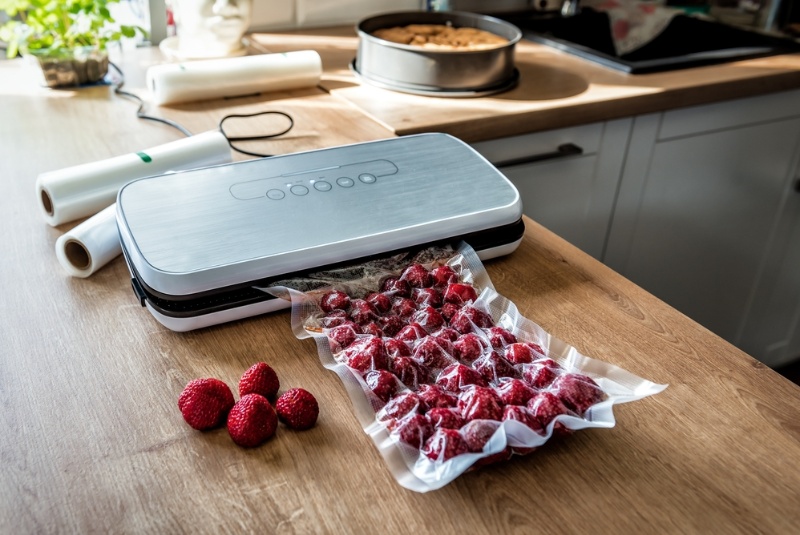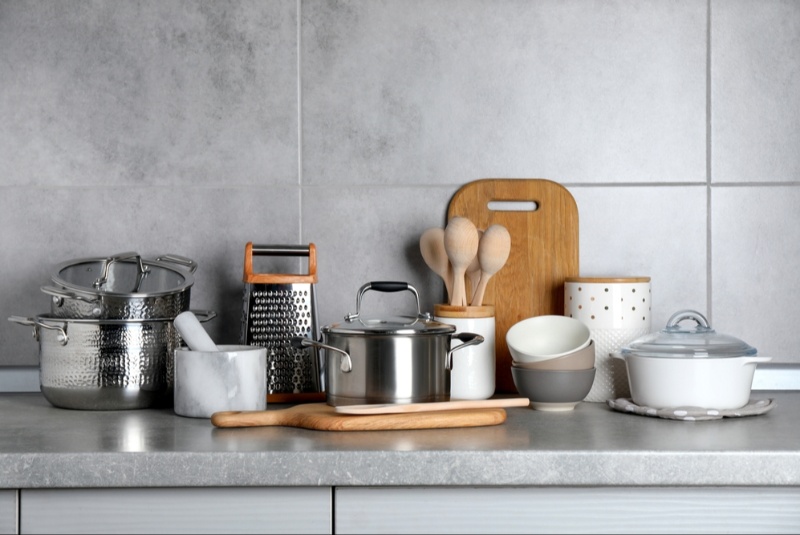A food vacuum sealer is a valuable tool for any kitchen, extending the shelf life of foods, reducing waste, and aiding in meal prep. For the savvy buyer, choosing a high-performance model is crucial for efficiency, durability, and ease of use. This guide will navigate you through the key considerations for selecting the best food vacuum sealer for your needs.
Understanding Food Vacuum Sealers
Food vacuum sealers remove air from a plastic bag or container and seal it to preserve the food inside. By eliminating air, these devices prevent the oxidation and freezer burn that can spoil food. There are two main types of vacuum sealers: external and chamber vacuum sealers. Each has its own benefits and ideal use cases.
Evaluating Sealer Types: External vs. Chamber
External vacuum sealers are great for home use, offering a compact and more affordable option. They work well for sealing bags of various sizes but can struggle with liquids. Chamber vacuum sealers, typically used in commercial settings, can handle larger volumes and liquids but are larger and more expensive.
Assessing Sealing Performance and Efficiency
The efficiency of a vacuum sealer is crucial. Look for models that offer strong suction power and a high-quality sealing bar. This ensures that the vacuum process is effective and the seal is airtight, providing optimal preservation of food.
Durability and Material Quality
A high-performance vacuum sealer should be built to last. Look for models constructed with durable materials, such as stainless steel, which can withstand frequent use. The quality of the components, like motors and pumps, also contributes to the longevity of the machine.
Ease of Use and Convenience Features
User-friendliness is a key factor in choosing a vacuum sealer. Look for features like easy-to-clean designs, intuitive controls, and convenient options like bag cutters or roll storage. Models with adjustable settings for different food types can also enhance the user experience.
Size and Storage Considerations
Consider the size of the vacuum sealer and the space available in your kitchen. While chamber sealers offer more power and versatility, they are significantly larger. External sealers are more compact and suitable for smaller kitchens or occasional use.
Bag and Accessory Compatibility
Check the compatibility of the vacuum sealer with different bags and accessories. Some sealers require specific types of bags or have limitations on bag size. Having a range of compatible accessories can also expand the machine’s capabilities, like sealing containers or jars.
Understanding the Cost-Benefit Analysis
Balance the cost of the vacuum sealer with the benefits it provides. While high-performance models may come with a higher price tag, they often offer better efficiency, durability, and versatility. Consider how often you will use the sealer and the potential savings from reduced food waste.
Maintenance Requirements and Cleaning
Maintenance is an important aspect of owning a vacuum sealer. Look for models that are easy to clean and maintain. Some sealers have removable parts or drip trays for easy cleaning. Regular maintenance ensures the longevity and performance of the sealer.

Evaluating Noise Level and Power Consumption
The noise level can be a consideration, especially in a home environment. While chamber sealers are generally quieter, some external sealers are designed to operate more quietly than others. Additionally, consider the power consumption of the sealer, especially if you plan to use it frequently.
Identifying Additional Functionalities for Versatile Use
When selecting a food vacuum sealer, exploring additional functionalities can significantly enhance its versatility. Some high-performance models offer features beyond basic sealing, such as marinating modes, which can infuse flavor into meats and vegetables quickly. Others might have integrated scales for precise portion control, or options for sealing delicate items without crushing them. These extra features can transform a vacuum sealer from a single-purpose tool into a multi-functional kitchen appliance, providing more value for your investment and broadening your culinary capabilities.
Reading Reviews and Seeking Expert Opinions
Before making a purchase, read online reviews and seek opinions from culinary experts or experienced users. Reviews can provide valuable insights into the performance, reliability, and practicality of different vacuum sealer models. Pay particular attention to comments about the longevity and any common issues with specific models.
Testing the Vacuum Sealer Before Purchase
If possible, test the vacuum sealer or see a demonstration before buying. This allows you to assess its ease of use, sealing quality, and other features firsthand. It also gives you an opportunity to ask questions about the machine's operation and maintenance.
Considering Eco-Friendly and Energy-Efficient Options
For environmentally conscious consumers, consider eco-friendly and energy-efficient vacuum sealers. These models consume less power and are often made from sustainable materials. Choosing an eco-friendly model not only helps reduce your carbon footprint but also aligns with a sustainable lifestyle.
Selecting the right food vacuum sealer involves considering factors like the type of sealer, sealing performance, durability, ease of use, size, bag compatibility, cost, maintenance, and eco-friendliness. By thoroughly evaluating these aspects and conducting proper research, you can find a high-performance vacuum sealer that meets your culinary needs and enhances your food preservation efforts.




